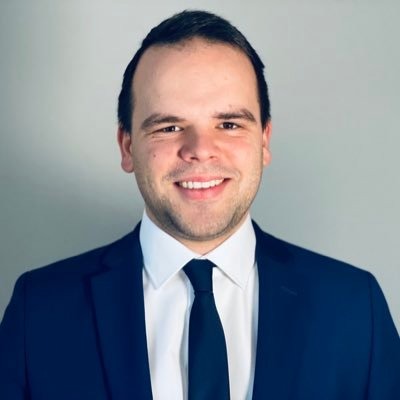Around 50 million people visit Turkey every year. But many forget: Although only about 0.2 percent of Turks are baptized Christians, the traces of the once Christian region are still visible.
Fr. Giovanni Biallo, Spiritual Assistant of the “Opera Romana Pellegrinaggi,” explains, “Turkey is so important. It is very important because the first creation of the new Christian communities have been here with Saint Paul, with Saint Peter, with John the Apostle, and the with the presence of Mary also.”
In collaboration with the “Türkiye Tourism Promotion and Development Agency”, the Turkish Embassy in Rome and the pilgrimage office of the diocese of Rome, “Opera Romana Pellegrinaggi,” a group of journalists and priests traveled to Turkey from February 17th to the 21st.
Director of Opera Romana Pellegrinaggi Sr. Rebecca Nazzaro notes, “This pilgrimage is very important because we are going to visit the sites of the councils and therefore Turkey and the Holy Land of the Church.”
The group was led by Fr. Giovanni Biallo and Sister Rebecca Nazzaro.. Since this is the pilgrims’ office directly under the Bishop of Rome, which of course is Pope Francis, this trip had special symbolic character. The group followed in the footsteps of the first seven Ecumenical Councils, all of which took place in what is now Turkey.
Sr. Rebecca highlights, “You can feel very strongly here that the Catholic Church breathes with both lungs, East and West, and so we really hope that we can relive this unity together as it was at that time.”
The first stop was Ephesus. In the year 431, at the Third Ecumenical Council held there, the Holy Mother of God was proclaimed Theotókos, “God-bearer.”
“Ephesus is important for many reasons. The council and there is a church, what remained of the church of the Council. And very close to the archaeological site there is the basilica that was built on the grave of John the Apostle,” Fr. Giovanni points out.
In the Bible, the Acts of the Apostles describe how the apostle Paul stayed in Ephesus for some time and was attacked by an angry crowd in the theater.
On the onward journey to Iznik, the group also passed other historical sites such as Pergamon, which is also mentioned in the Bible.
About two hours away from Istanbul lies Nicaea, today the small town is called Iznik. It is not only the birthplace of the Catholic creed, but also the scene of two councils.
The creed was established 1700 years ago at the first ecumenical council, and the so-called “Byzantine Iconoclastic Controversy” was settled at the seventh ecumenical council in 787. The church where the bishops gathered at the time is now a mosque.
Four important Ecumenical Councils were held in Istanbul, formerly Constantinople.
Here in the Hagia Irene, the Church of Peace, in 381, bishops and theologians discussed the divinity of the Holy Spirit.
Not far from the center of Istanbul stands the church of St. Mary. The Council of Chalcedon took place in this neighborhood in 451. There, the assembly proclaimed that Jesus is “truly God and truly Man.”
But in Istanbul, the Hagia Sophia stands out in particular, having experienced a chequered history. Built in 537, the Hagia Sophia served people for 916 years as a church. The fifth and sixth ecumenical councils were held here in 553 and 680.
After the conquest of Constantinople by the Turks in 1453, the basilica was converted into a mosque.
Bishop Massimiliano Palinuro has been leading the Apostolic Vicariate of Istanbul since 2021. Here in the diaspora, he feels the wound of divided Christianity particularly acutely, as he told the pilgrims after he celebrated Mass with the group in Istanbul.
Bishop Massimiliano Palinuro of the Apostolic Vicariate of Istanbul underscores, “This city made me very sad because if you look at it with careful eyes, this city bears the wounds inflicted by history and bears the wounds of Christian divisions. This city, which was the capital of the East of the Christian East. Because of Christian divisions, because of our counter-witness, it is today an Islamic city; because of us!”
The experienced priest and pilgrim guide Father Giovanni will not let himself be robbed of hope:
“Because I see the fruits of the presence of Jesus, of the Holy Spirit in the life of the people. Especially for us priests this is so fantastic, so wonderful to recognize how the Holy Spirit gives new holiness, mercy and changes the lives of many people. The Lord is still working hard among us.”
SIGN UP FOR OUR NEWSLETTER HERE
Adapted by Jacob Stein
Produced by Rudolf Gehrig, Camera: Fabio Gonella, Video Editor: Giada D’Ottavi. Special thanks & Credits to Opera Romana Pellegrinaggi, the Ambasciata di Türkiye a Roma - Ufficio Cultura e Informazioni, TGA - Türkiye Tourism Promotion and Development Agency, and Turkish Airlines

Rudolf Gehrig has been working for EWTN since 2013, among other things as a reporter, TV presenter, and producer. From 2019 to 2022 he was chief correspondent for German-speaking Europe at CNA Deutsch before moving to the Italian capital as a Rome correspondent and has since reported for EWTN Vatican and CNA Deutsch directly from the heart of the universal Church.







